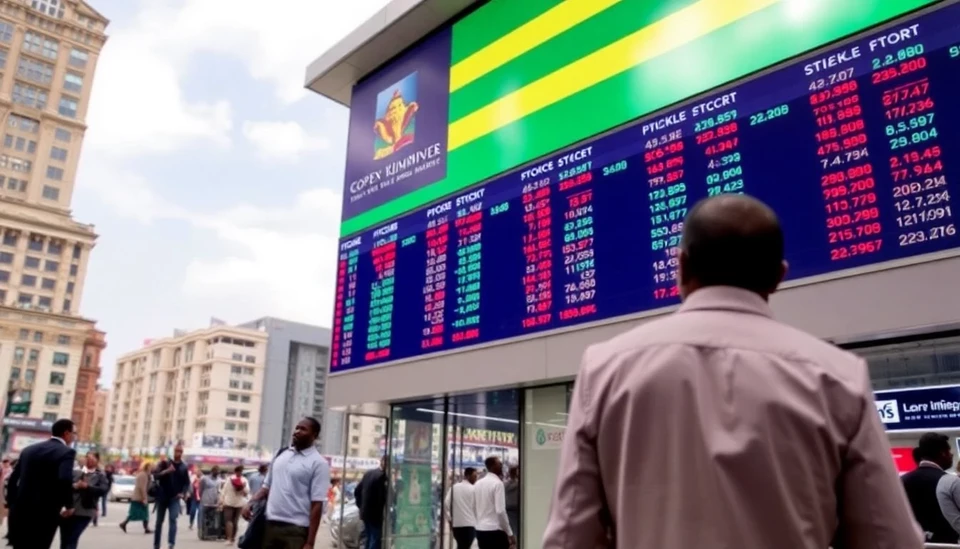
In a stark turn of events, Zimbabwe's stock market has ground to a halt, struggling to maintain its recent gains as a significant liquidity squeeze looms over the economy. Investors are starting to grow increasingly cautious, leading to a downturn that could have far-reaching consequences for the nation's financial landscape.
The country, which has seen a resurgence in stock market activity in recent months amidst a backdrop of economic instability, is now facing challenges fueled primarily by tightening liquidity conditions. This shift comes as the Reserve Bank of Zimbabwe implements measures aimed at curbing inflation, which has plagued the nation for years and has often led to volatility in both the currency and stock market.
Data indicates that transaction volumes on the Zimbabwe Stock Exchange (ZSE) have diminished sharply, leading to a pronounced decline in share prices. The liquidity crunch appears to be tightening due to several factors, including reduced foreign investment and slower economic growth attributed to both local and global economic pressures.
Investors are reportedly retreating from the market, citing concerns over the sustainability of recent gains. As the liquidity situation worsens, many are revisiting risk assessments and questioning the overall viability of investing in Zimbabwe's stock market at this juncture.
Market analysts believe the Reserve Bank's decisions to tighten monetary policy may be necessary to combat inflation, yet they acknowledge the unintended consequences of squeezing liquidity could lead the economy into a more fraught state. The delicate balance between controlling inflation and fostering market confidence is now at risk.
Moreover, the landscape of financial investment in Zimbabwe has undergone considerable shifts, as more individuals seek refuge in safer assets amid fears of further market instability. This trend could hamper economic growth, as a downturn in the stock market often leads to decreased capital for companies seeking to expand or innovate.
The prospects for the Zimbabwean economy remain uncertain, with stakeholders eagerly watching how policymakers navigate this tricky terrain. In light of these developments, the need for effective economic strategies that can bolster investor confidence and improve liquidity in the market has never been more crucial.
As the situation continues to evolve, investors, analysts, and policymakers alike are left to ponder the implications of a deepening liquidity crisis on the nation's stock market, the broader economy, and the livelihoods of ordinary Zimbabweans who depend on a stable financial environment.
In conclusion, while the temporary pause in stock market gains can be attributed to current liquidity challenges, the potential long-term ramifications for economic stability in Zimbabwe present an urgent situation that demands attention and action from both public and private sectors. The resilience of the Zimbabwean economy will greatly depend on swift and effective responses to these liquidity issues moving forward.
#Zimbabwe #StockMarket #LiquidityCrisis #Economy #Investment #FinancialStability #Inflation
Author: Rachel Greene




